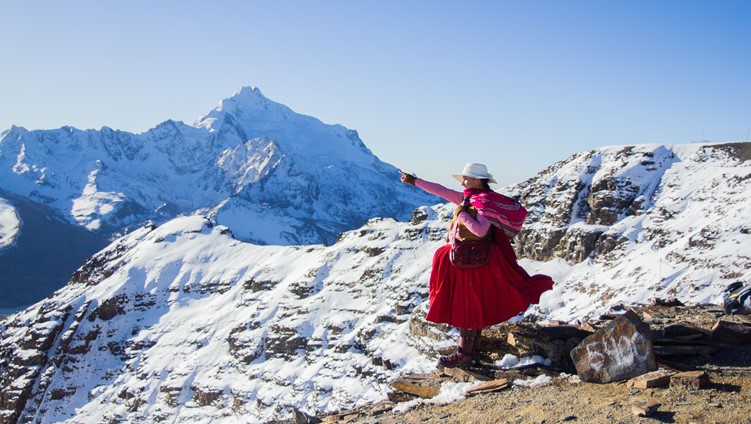Long-distance cyclist and author Julian Sayarer joined us on the Ride for Change to COP26, a week before his recent Iberia book launch, this is his story written en route in a bar in Penrith, a welcome respite from the piercing rain.
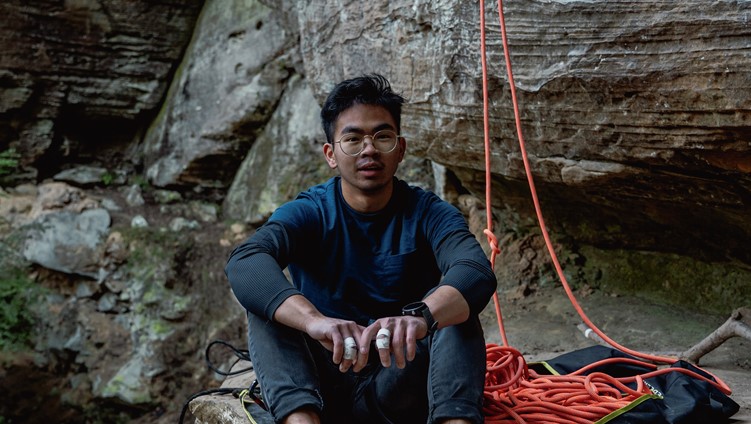
Long-distance cyclist and author Julian Sayarer joined us on the Ride for Change to COP26, a week before his recent Iberia book launch, this is his story written en route in a bar in Penrith, a welcome respite from the piercing rain.
Cycling five hundred miles to a climate conference is many things and moods all at the same time.
There is of course the sheer idealism of the notion; the sense that it could all be so simple. That the human endeavour of the ride is – as with addressing climate change – the sort of effort that, mustered, shows just what we as individuals and groups are capable of.
There is, occasionally on a long and tiring drag, the pessimism at our corporate and political leadership and if they – hooked on business-as-usual as they are – are even capable of recognising or responding to such an ideal or act. This failure is a danger in itself, not to mention a systemic risk, because a system that cannot recognise or act on human ideals is one that does not work.
There is the pragmatism of those who caught a train for the hilliest, wettest day, reasoning – reasonably enough – that neither climate nor politician is really affected if they do or do not grind-out another eighty in five hundred miles along the wet slopes. Pragmatism, not to mention the act of slowing-down, are both key skills in addressing climate change.
All of these notions bring something to the table, and successful political movements are rarely rooted in purity so much as a common purpose between different groups. More often than not it is the opponent of a movement that demands it to be homogeneous.
These contrasts of mood and thinking are perhaps unsurprising given the many different types of riders that made their way from London up to Glasgow for the opening of COP26.
The diversity is perhaps further unsurprising considering the generally unifying natures of both riding bicycles and concern about climatic change. The pack of the ride brought everything from the corporate to the grassroots; sustainable transport campaigners, corporate partners, start-ups still waiting to turn a profit, bikeability instructors, and – probably most important of all – people who just love cycling.
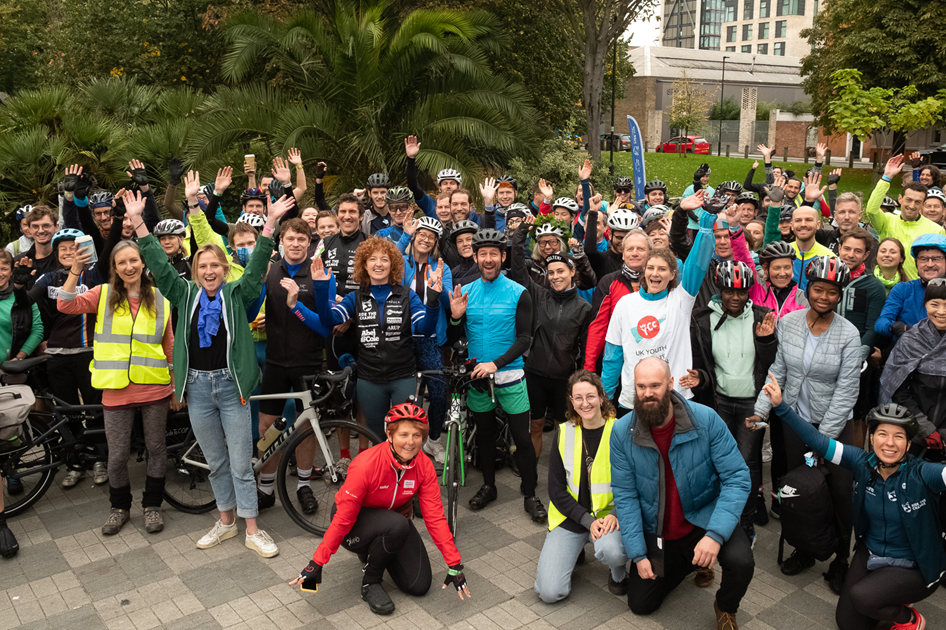
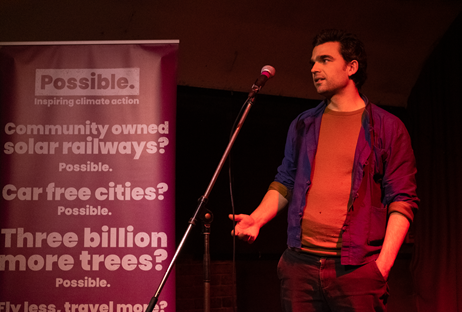
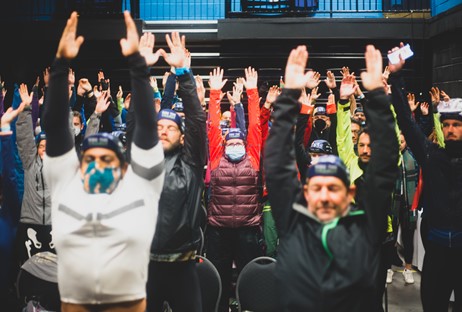
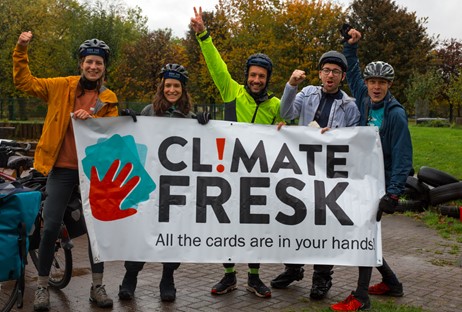
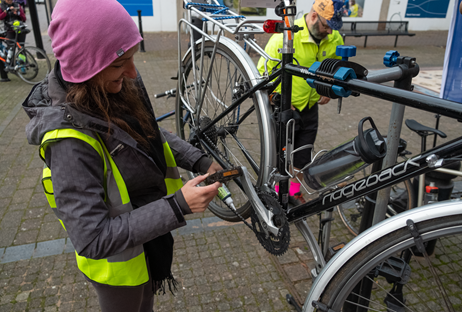
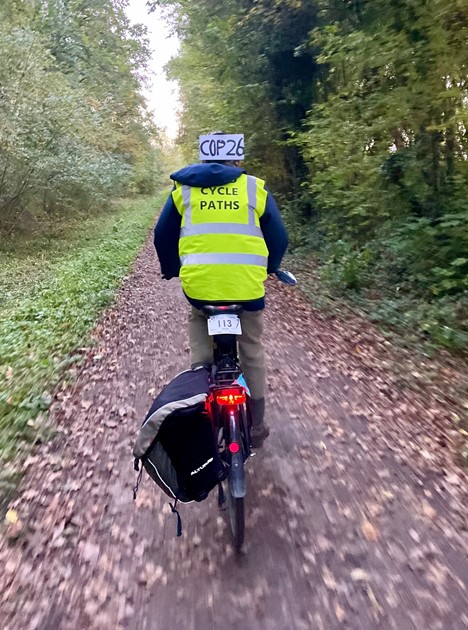
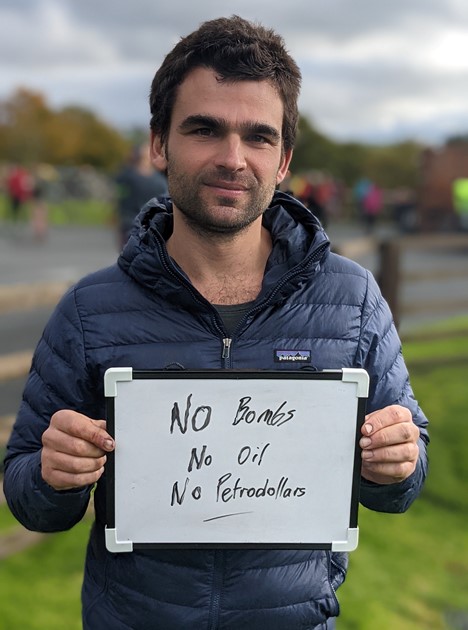
With this breadth comes a matching diversity of ideas. There is the familiar idea that we must work within the system to bring change. The related one that doing good is not and should not be regarded as incompatible with turning a profit. That for these things to be made true we need a deeper democracy and political participation overall. Finally there is the view that our system is not fit for purpose and would not know how to implement such radical change without first being dismantled beyond almost all recognition. As with the bicycles and attire of the ride – road bikes to cargo bikes, lycra and bib shorts to leggings and a hoodie – there is no right answer and it would be wrong to think that all of these ideals aren’t needed and welcome along the path of change.
You never learn any one lesson from cycling a long way. Maybe you don’t learn any at all, and that’s fine too. That thing called ‘The Climate Movement’ is diverse, even if this diversity is not always well-represented. It runs from Tunisian farmers to white collar professionals in cities; through concerned public officials and, perhaps again most important, simply those who care. It is and needs to be a human movement, rooted in people more than only carbon or the carbon-equivalents of others gases; because when you care for people you bring them with you, and it is of course people who will and already are being devastatingly harmed by climate change. Carbon – the unit being measured – can never become a moral foundation, and that thing we call ‘the planet’, as is increasingly being recognised, will be fine and go on turning.
To achieve the necessary change in the necessary time, a certain confidence in your views is needed. It is not there yet, but it is rising. The thought to demand an ecosystem and energy supply that prioritises humans is a comparatively new one, born of necessity. The language necessary to articulate these demands is still being discovered, but it will become clearer the longer and more forcefully such demands are being made. In a pack of cyclists who think likewise, riding together, your own views are reflected back at you, so that the idea we should demand sanity rather than accept the insanity of the status quo becomes more normal. This is important.
Place is important, mobility too; those times where you move through everything and are reminded that everything is connected. If you don’t find absolute lessons or answers on a long ride, there are nonetheless those moments that mean something and stick around. The roads, up into the high places, where the cloud sits low above and now and then opens with its rains. Where the gorse and bracken is burnt brown against the bald green hills and white sky, where the wind presses so kind at your back but moves the air so fast that all the world grows silent, with each sound spirited in an instant far into the distant road and hill, for someone else to hear.
The pedals turn faithfully below, in-time with the pedals and the cranks of those beside you, who you didn’t know but two days ago, as you all ride with heads lowered down over the bars; a drip of rain on the nose, hood, on the peak of a cycling cap as a head turns to you with a knowing smile, and together, you continue.
https://mrbsemporium.com/shop/books/iberia
For Bristol riders there is an event in the city on November 16 (https://www.stanfords.co.uk/event-cycling-iberia-with-julian-sayarer-194340777497), and in Bath on November 18 (https://mrbsemporium.com/events/2021/10/an-evening-to-celebrate-iberia-by-julian-sayarer-at-mr-bs)
